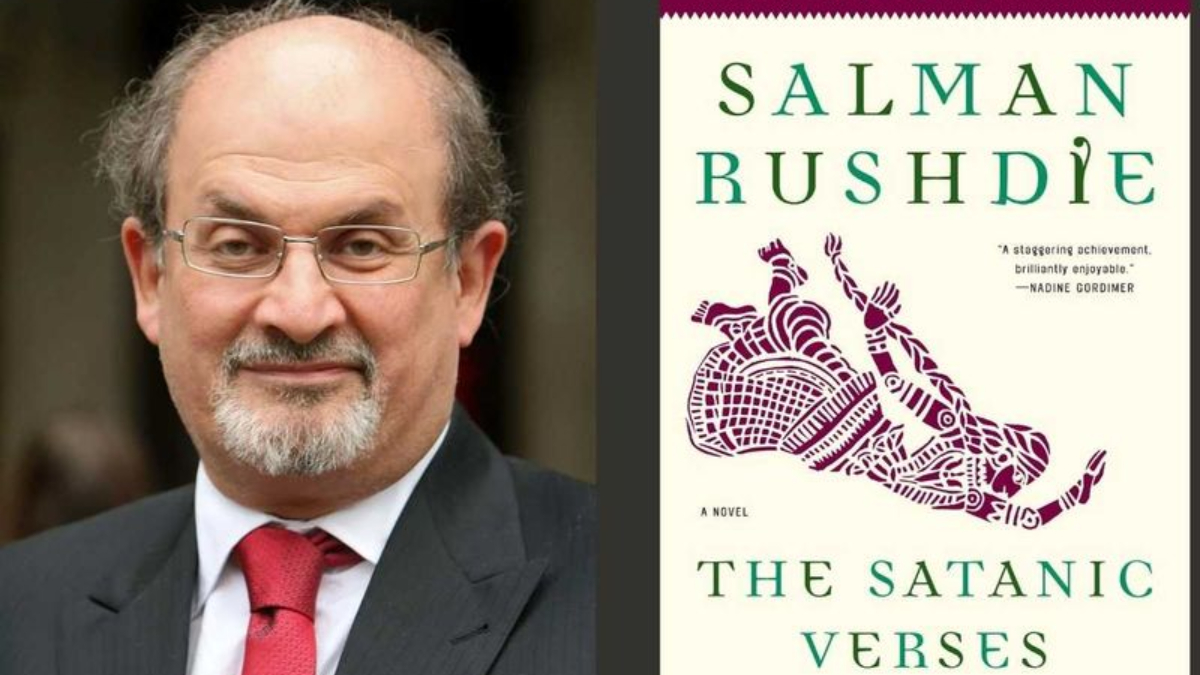Salman Rushdie’s 1988 novel ‘The Satanic Verses’ – returns to the country’s bookshops after being banned for 36 years? | File Photo
How do you explain the lack of street protests and the silence of political groups as one of the most controversial books published in independent India -Salman Rushdie’s 1988 novel ‘The Satanic Verses’ – returns to the country’s bookshops after being banned for 36 years?
The book, which is based on the life of Islam’s prophet Muhammad, was banned by the Rajiv Gandhi government immediately after it was published.
An international fatwa and a bounty were placed on the head of the author by the Iranian government, forcing him to go into hiding.The book, considered blasphemous by believers, still evokes extreme reactions. Rushdie, who had come out of hiding, was stabbed two years ago in New York, losing an eye in the attack.
The book’s release in India had triggered riots. However, reaction to news about the book’s reappearance on the bookshelves has been muted.Dr Zeenat Shaukat Ali, former head of the Department of Islamic Studies at Mumbai’s St Xavier’s College, explained it: “The Muslim community has matured.
Many things have happened in the last few years. There was a mindset that Muslims did not react (to events) logically. The reaction (to the book’s reappearance) has been muted, which is the correct reaction. We are hurt, but we cannot react violently.”
Others who had seen the protests that led to the book’s ban said that the Muslim community is now facing so many challenges, both politically and socially, that the book is another irritant. Farid Khan, president of the literary group Urdu Caravan, said that he had watched the protests in Mumbai and the police reaction to it.
“At that time people felt that they had a friendly government that would listen to them. There have been so many events since then – the 1993 riots, the demolition of the Babri Masjid. People have seen worse things. A book looks irrelevant after all these,” said Khan.
Another reason for the tepid response to the book’s return could be the four decades that separate the ban and the book’s reappearance. The majority of the community have been born after the controversy. Nazim Ansari, 36, a human resource consultant, said he did not know about the book till he read recent news reports. “Young people are not familiar with the book,” said Ansari.
The government has not officially lifted the ban on the book but the order is now in legally untenable territory, the notification banning the book having been lost.
Noting that no document exists to enforce the ban, the Delhi High Court said: “We have no other option except to presume that no such notification exists.”The book’s publishers in India – Penguin Random House – have not commented about republishing a new edition.
Manasi Subramaniam, the editor-in-chief at Penguin Random House India, the book’s publisher, quoted Rushdie on X, and posted: “‘Language is courage: the ability to conceive a thought, to speak it, and by doing so to make it true.’ At long last, @SalmanRushdie’s The Satanic Verses is allowed to be sold in India.”The book is not yet available on major e-retail sites. One online site has the book on sale for Rs 1714. Amazon’s international portal sells the book but it is not available for shipment to India.
The site, however, sells the Kindle edition. In Delhi, major book retailer Bahrisons said in a social media post that it is in stock, though the imported edition cost around Rs 2000.
In Mumbai, the book is not available at major retailers.However, it may be too early to decipher the response to the book’s sale. Maulana Yasub Abbas, general secretary of the All India Shia Personal Law Board, said he wrote to the Prime Minister on Thursday demanding a fresh ban on the book.
“The book insults prophet Muhammad and his companions. Allowing its sale poses a threat to peace. The Prime Minister has to stop the sale,” said Abbas
Maulana Rashidi, legal advisor for the UP unit of Jamiat Ulama-e-Hind (AM) reported as saying: “Religious sentiments cannot be hurt under the garb of freedom of expression guaranteed by the Constitution.”
Saeed Noori, president of Raza Academy, said it is regrettable that such orders are being issued by the court. “The government should take decisive action, but it seems that those in power influence court decisions based on their inclinations.”
